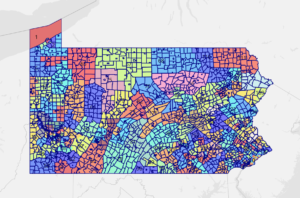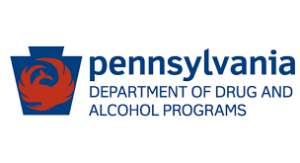PA Health Policy Update for Friday, March 10
The following is an update of selected state health policy developments in Pennsylvania from March 4 to March 10. (Some of the language used below is taken directly from state documents.)
 Governor Shapiro
Governor Shapiro
Governor Shapiro delivered his first budget address before the General Assembly this week. The themes highlighted throughout his speech included investing in public safety and public health, creating opportunity by growing the state’s economy, expanding the workforce, ensuring that every child has access to a quality education, and increasing access to mental health services. In total, Governor Shapiro’s proposed FY 2024 budget would spend $45.8 billion, a $2.5 billion or 5.9 percent increase over the current fiscal year. For further information about the proposed budget, see the following resources:
- 2023-24 Governor’s Executive Budget
- 2023-24 Budget in Brief
- 2023-24 Proposed Budget Line-Item Appropriation
- 2023-24 Proposed Budget Slide Presentation
General Assembly
- The Senate unanimously passed Senate Bill 8 this week. This legislation requires insurers to cover costs associated with genetic counseling and genetic testing for the BRCA1 and BRCA2 gene mutation if a person is diagnosed with breast or ovarian cancer or has a family history of breast or ovarian cancer. It also requires insurers to cover all costs associated with a supplemental breast screening by MRI or ultrasound for women at increased risk of breast cancer pursuant to Act 52 of 2020. Senate Bill 8 was received in the House and referred to the Insurance Committee.
- The state House and Senate appropriations committees will begin hearings on Governor Shapiro’s proposed FY 2024 budget the week of March 20. A complete schedule for the House Appropriations Committee can be viewed here and a complete schedule for the Senate Appropriations Committee can be viewed here.
- The state House and Senate are now recessed until the conclusion of budget hearings. Both chambers will return to session on Monday, April 24.
- The House Democratic Caucus announced its 2023-2024 legislative session committee chairs this week. Representative Dan Frankel will serve as chair of the Health Committee and Representative Stephen Kinsey will serve as chair of the Human Services Committee. A complete list of the House committee chairs can be viewed here.
 Department of Human Services
Department of Human Services
- The Department of Human Services (DHS) has posted a notice to inform presumptive eligibility providers of care to pregnant women that the income guidelines used to determine presumptive eligibility have been updated effective January 12, 2023. Go here to see the notice, which includes information about the criteria for qualifying for presumptive eligibility and the new income guidelines.
- DHS has posted a reminder that all Medicaid-enrolled providers who dispense hearing aid supplies to Medicaid patients must submit a copy of their renewed Department of Health certification to MA Provider Enrollment by March 16 to continue providing and billing DHS for hearing aid supplies. Find that notice here.
- DHS has issued a request for information seeking stakeholder input and information concerning the current Community HealthChoices agreement for the anticipated re-procurement of Community HealthChoices managed care organization contracts. Specifically, the state seeks information on the statement of work for the upcoming re-procurement before issuing a request for application for vendors to bid on program participation. Go here to learn more about the request for information and what the state seeks from interested parties. The deadline for submitting comments is April 14.
- DHS has shared minutes from the February 23 meeting of the Medical Assistance Advisory Committee and minutes from the January 25 meeting of that committee’s consumer subcommittee.
- Acting DHS Secretary Dr. Val Arkoosh has written an op-ed column outlining how the state will work with its Medicaid population and various organizations to determine the continued eligibility of current participants in the face of the end of the continuous Medicaid eligibility that was part of the federal government’s and the state’s response to the economic challenges posed by COVID-19. That column was published in several newspapers across the state; find an example here from the Pittsburgh Tribune-Review. The ideas outlined in this op-ed column are reinforced and explained in greater detail in this Shapiro administration news release.
Department of Health
- The Department of Health has issued a request for applications to award grants to local health departments, health systems, health clinics, Federally Qualified Health Centers, Rural Health Clinics, non-profit organizations, local governments, 501(c)(3) organizations, and other clinical providers serving the 10 counties with the highest suicide rates in Pennsylvania (Venango, Blair, Dauphin, Berks, Luzerne, Lycoming, Wayne, Franklin, Sullivan, and McKean counties) for a suicide prevention pilot program. It seeks to fund applicants addressing evidence-based suicide prevention strategies for youth between the ages of 15 and 24 and creating local inventories of suicide prevention resources. The overall goal of this funding is to promote the reduction of factors that increase risk and increase factors that promote resilience among disproportionately affected populations especially among Pennsylvania youth. Learn more from this solicitation notice, which includes a link to the request for applications. Applications are due by April 6.
- The Department of Health has published decisions on recent requests for exceptions to health care facility regulations. Find those decisions in this Pennsylvania Bulletin notice.
COVID-19: By the Numbers
- The number of new COVID-19 cases reported daily in Pennsylvania fell 19 percent over the past week after falling 17 percent the previous week. In addition, the number of daily deaths has declined slightly.
- According to the Department of Health, the number of Pennsylvanians hospitalized with COVID-19 fell 16 percent last week after a nine percent decline the previous week and was below 1000 for the first time since May of 2022. The number of COVID-19 patients on ventilators declined 17 percent last week and the number in hospital ICUs fell 28 percent and is down into double digits – 98 – for the first time since July of 2022.
- The CDC reports an 18 percent decline in the seven-day daily average of new hospital admissions in Pennsylvania because of COVID-19 after a 13 percent decline the previous week.
- For the week ending March 8, 10 Pennsylvania counties experienced a moderate rate of community transmission of COVID-19; 29 counties experienced a substantial rate of community transmission; and the remaining 29 counties experienced a high rate of community transmission. This reflects a significant improvement over recent weeks.
 Stakeholder Events
Stakeholder Events
Patient Safety Authority – Board Meeting – March 16
The Patient Safety Authority board will meet virtually on Thursday, March 16 at 1:00. For information about participating in the meeting, see this Pennsylvania Bulletin notice.
DHS – Medical Assistance Advisory Committee – Consumer Subcommittee – March 22
The consumer subcommittee of the Medical Assistance Advisory Committee will meet virtually on Wednesday March 22 at 1:00. Go here to register to participate.
DHS – Medical Assistance Advisory Committee – March 23
The Medical Assistance Advisory Committee will hold its next public meeting virtually on Thursday, March 23 at 10:00. Go here to register to participate.
DHS – Medical Assistance Advisory Committee – Managed Long-Term Services and Supports Subcommittee Meeting April 5
The Medical Assistance Advisory Committee’s managed long-term services and support subcommittee will hold a public meeting on Wednesday, April 5 at 10:00 in Harrisburg. For information about how to join the meeting in person or participate remotely, see this DHS notice.
Department of Drug and Alcohol Programs – Adolescent ASAM Criteria – May 16
The Department of Drug and Alcohol Programs is offering training on adolescent ASAM criteria, to be delivered virtually, for participants who already understand the foundational aspects of the ASAM criteria. The purpose of this training is to explore and discuss the adolescent-specific aspects of the ASAM criteria and offer participants a practical focus through lecture, real-world clinical vignettes, and case studies. The program will be held on May 16 at 8:30. Continuing education credits are available. Learn more about the program, including requirements for participation and how to join, from this Department of Drug and Alcohol Programs notice. Please note that this program is identical to one offered on March 9.
 Governor Wolf
Governor Wolf FY 2023 Budget Update
FY 2023 Budget Update General Assembly
General Assembly Department of Health
Department of Health General Assembly
General Assembly Governor Wolf
Governor Wolf Department of Drug and Alcohol Programs
Department of Drug and Alcohol Programs Included in this month’s issue are articles about:
Included in this month’s issue are articles about: Redistricting Update
Redistricting Update General Assembly
General Assembly Pennsylvania Health Care Cost Containment Council (PHC4)
Pennsylvania Health Care Cost Containment Council (PHC4) Governor Wolf announced that Pennsylvania’s state-based health insurance marketplace, known as Pennie, has added a new “qualifying life event” to enable low-income Pennsylvanians to enroll in health insurance throughout the year. Under this new qualifying life event, Pennsylvanians with an annual household income equal to or below 150 percent of the federal poverty level will be permitted to shop and enroll in health insurance through Pennie, with financial assistance available to those who qualify. Until now, this opportunity was only available for those not already receiving coverage through Pennie. Beginning in June, existing Pennie customers whose income is lower than or equal to the 150 percent federal poverty level can update their application and change their plan using this qualifying life event. Learn more from
Governor Wolf announced that Pennsylvania’s state-based health insurance marketplace, known as Pennie, has added a new “qualifying life event” to enable low-income Pennsylvanians to enroll in health insurance throughout the year. Under this new qualifying life event, Pennsylvanians with an annual household income equal to or below 150 percent of the federal poverty level will be permitted to shop and enroll in health insurance through Pennie, with financial assistance available to those who qualify. Until now, this opportunity was only available for those not already receiving coverage through Pennie. Beginning in June, existing Pennie customers whose income is lower than or equal to the 150 percent federal poverty level can update their application and change their plan using this qualifying life event. Learn more from  Centers for Medicare & Medicaid Services
Centers for Medicare & Medicaid Services General Assembly
General Assembly Department of Drug and Alcohol Programs
Department of Drug and Alcohol Programs The state House Appropriations Committee began its FY 2023 budget hearings this week. The Senate Appropriations Committee will begin hearings next week. Hearings will conclude on March 17. A complete schedule of the hearings can be found
The state House Appropriations Committee began its FY 2023 budget hearings this week. The Senate Appropriations Committee will begin hearings next week. Hearings will conclude on March 17. A complete schedule of the hearings can be found  COVID-19: By the Numbers
COVID-19: By the Numbers Pennsylvania Higher Education Assistance Agency (PHEAA)
Pennsylvania Higher Education Assistance Agency (PHEAA)